
So Much —
Füsun Atalay ~ Copyright © 2008
i breathe you in the citronelle candles
whose flames resurrect episodes of our reunions.
i live you in my wildest
yet most modest dreams
standing under the pouring rain
listening to each other's eyes
as raindrops waltz on our lashes
and lightning precedes the thunder.
i feel you in the silk i wrap around my neck
whose every inch was worshipped by your lips—
and hold you in a tear drop
gently as you held me.
i hear you in the music and the whispers of the wind.
i feel you, breathe you, wear you, live you
day by day every minute
in my sleep or consciousness.
i scorn the bitter longing and the pain
of not being with you so much —
so much
that sometimes i even believe
i am you.
Füsun Atalay ~ Copyright © 2003








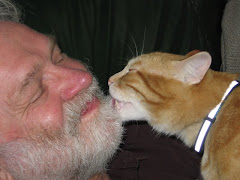











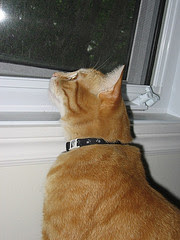












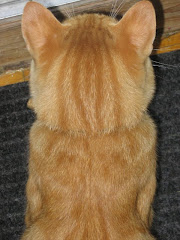

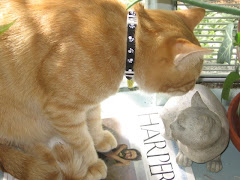

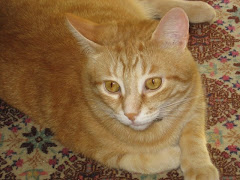


5 comments:
Fusun, this poem is tender and yet it has power. It moves me to write.
I had to learn the rules of English grammar before I could write. I've search my house for a "how to" write poetry book. It's not to be found. I was never short on guts at anything. I will try to write what my heart feels. After reading this piece my mind drifted back to my youth. Hence, my attempt to write a free verse poem. Any critiquing is welcome. And I can take a punch.
For The Love of Mae Monkshood
By John Atkinson
Her gentle touch,
Her soft spoken way
The awakening of me as a man.
Oh, Mae my darling Mae
Moon shadows danced in our berth
Her perfume sent my imagination to foreign lands.
I called her name from under silk so warm and kind
Oh, Mae. Mae Monkshood, my darling Mae.
Stop the clock and hold the hours of passion forever.
You are so divine and we are twenty
Her smile, her laughing eyes
The train ride I could have missed
Oh, Mae, The first glance of you was cast in bronze
And the train we rode has since rusted away, my first love, my darling Mae
The heartfelt pain won’t leave or loosen the brilliance of your love
And the agony of parting never fades from my lonely heart.
I long for you and you alone, my darling Mae
John,
I suggest reading books on what some great poets said on poetry rather than seeking books on "how to write" poetry. Poems—although they rise from personal experiences— touch, question, stir and entertain universal feelings, when they are good.
To quote Christopher Morley, "Poetry (may come) with anger, hunger and dismay..." and "a poem (may begin with a lump in the throat" ~ yet it ". . begins in delight and ends in wisdom." Robert Frost.
Archibald MacLeish believed that "A poem should not mean- But be," to which Carl Sandburg replied that "Poetry is an echo, asking a shadow to dance." Yet much before his time, Yeats was questioning, "Who can tell the dancer from the dance?"
So, what I'm saying is that you have to keep writing and rewriting. One thing to remember is poetry is not prose— create a concrete image, less is more and select the most powerful, succint word to convey your feelings. After all, in the words of Nathaniel Hawthorne : "Easy reading is damn hard writing."
Fusun, thank you for the information. I feel my weakness comes from not reading enough poetry. I was told that poetry would help my prose. I tend to write from the heart and the rules from Strunk & White Elements of Style help put my writing in print.
Mae Monkshood was a true life experience. I had no idea what would come onto the screen when I wrote it. I figured if something heartfelt is inside than it should pop up.
I have not read Morley, MecLeish, and others you mentioned, but I have Hawthorne.
I do love your poems and now I know it's by design that I as well as others are connected and relate to them.
Thanks for taking the time to put me on the right track. Best, John
Dear John,
although many poems express personal experiences and feelings they appeal to universal human emotions because the reader can relate to them. You have shown this when you wrote your "Mae Monkshood". And like Frost said, the inspiration may have started with a lump in your throat— a remembrance, a memory, a longing . . . and poured out into those lines. What I'm suggesting is : Don't stop there. Go back to it and see if you can tighten the images and make your poem more concrete.
When you say :"I called her name from under silk so warm and kind"
Do you mean her name so warm and kind— or the silk so warm and kind? Then ask what kind of an image that creates. Are you happy with it or can you make it more stunning and concrete? Do this with other lines- make your reader feel, hear, taste instead of telling.
There's no right or wrong track, please, I'm offering a humble opinion, because you asked for critique.
Sincerely,
Füsun A.
Fusun, thank you. This is precisely what I needed in a critique. I will rework Mae until I show rather than tell. I had to do that with my prose. Thank you for taking the time for a beginner.
I can see how poetry can be mind stimulating and fun.
Thanks again. Best, john
Post a Comment